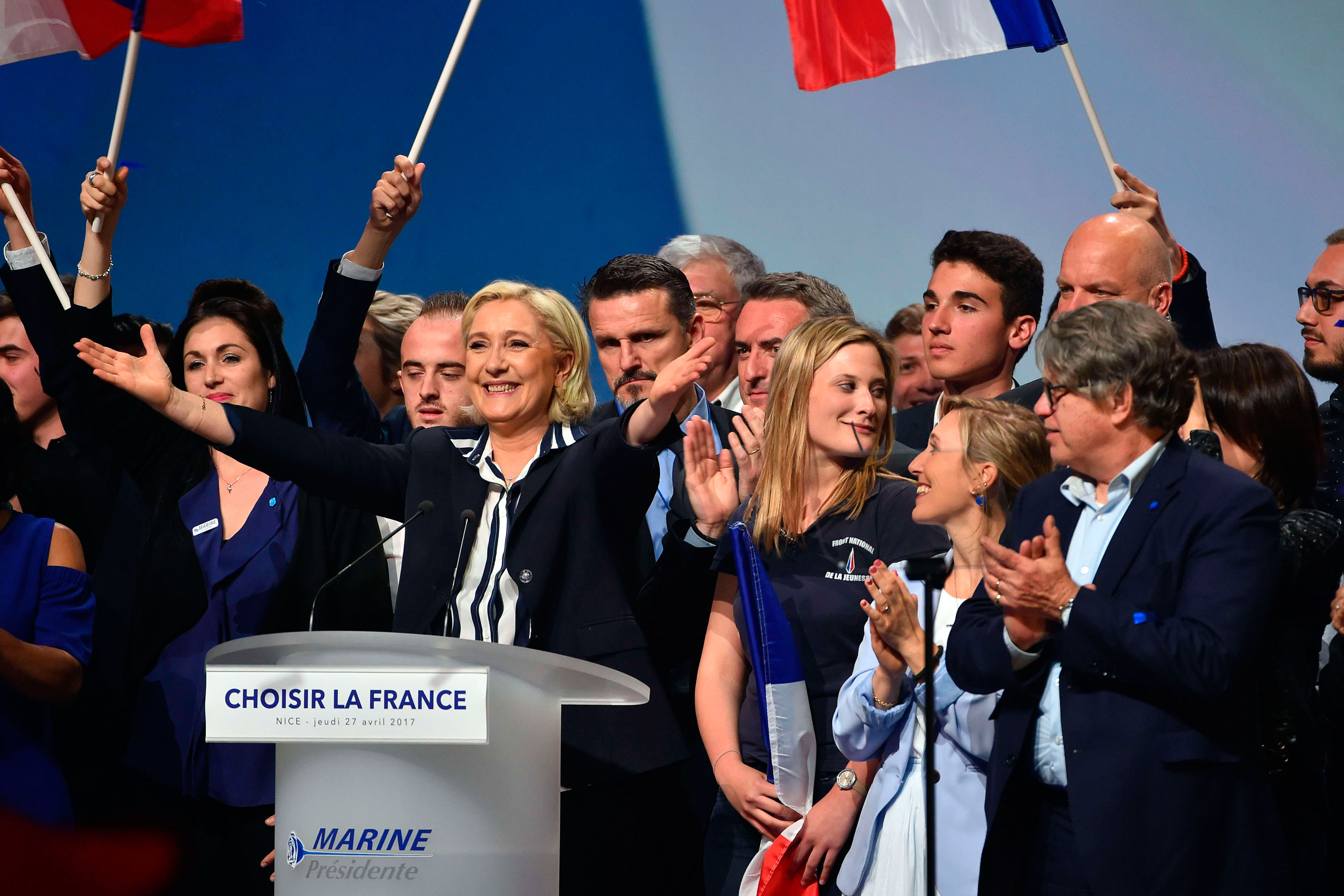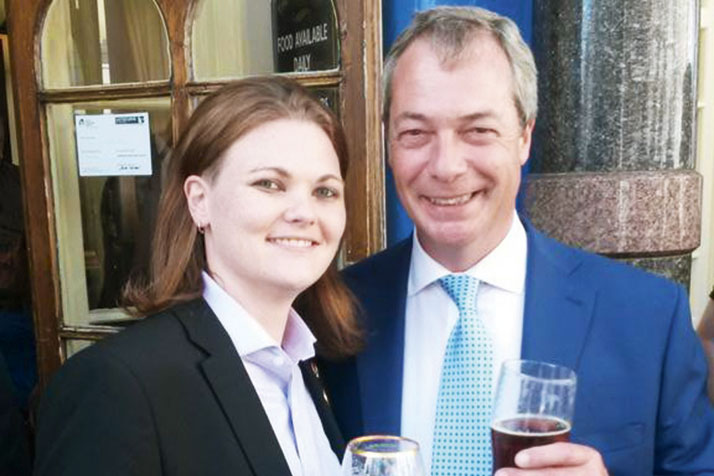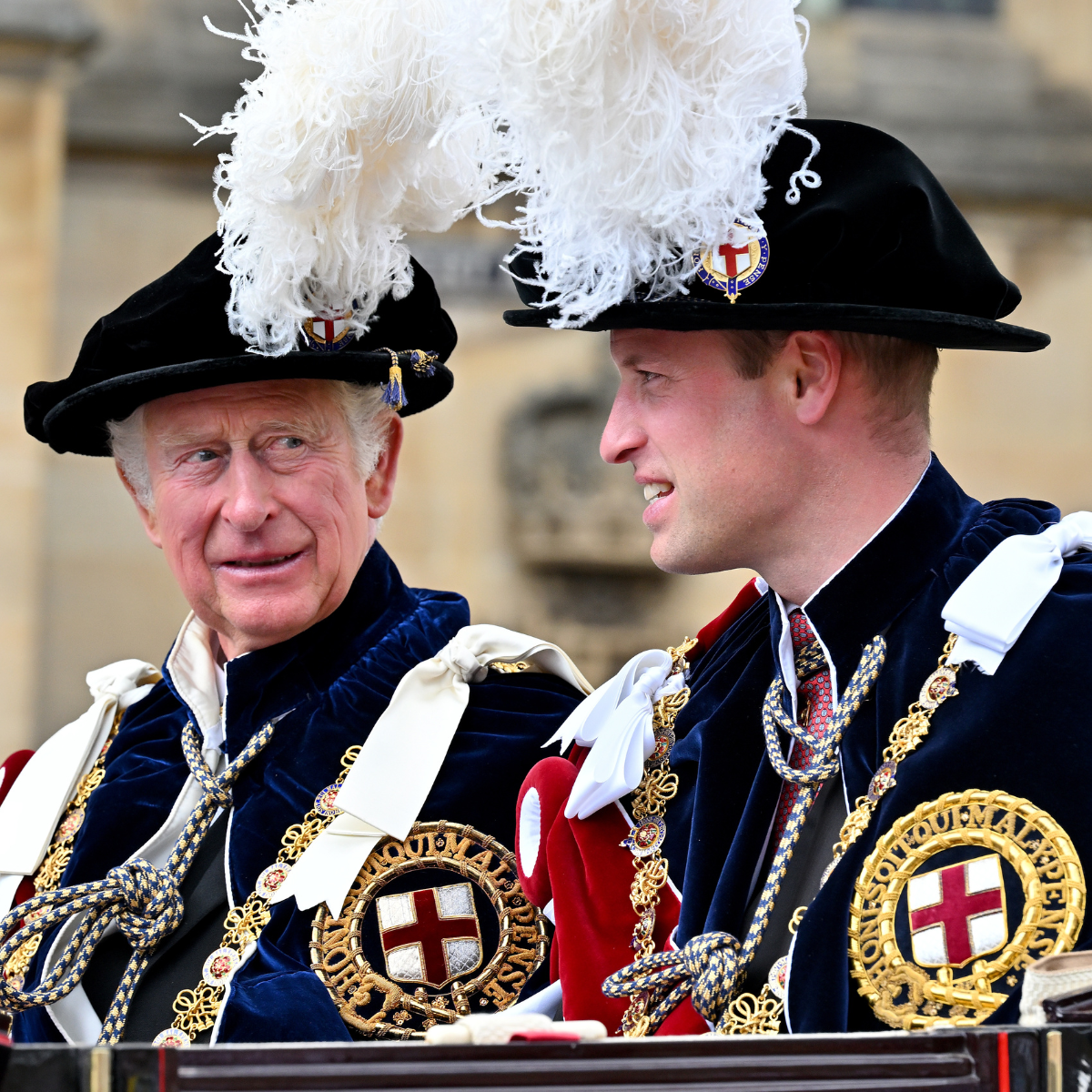Far-right millennials: what drives young women to extreme politics?
On Wednesday Donald Trump caused international outcry when he retweeted three inflammatory videos posted by Britain First Deputy Leader Jayda Fransen. Here's what happened when journalist Polly Dunbar met other young British women who have moved to the far-right fringes of British politics.

On Wednesday Donald Trump caused international outcry when he retweeted three inflammatory videos posted by Britain First Deputy Leader Jayda Fransen. Here's what happened when journalist Polly Dunbar met other young British women who have moved to the far-right fringes of British politics.
This article originally appeared on marieclaire.co.uk in May 2017.
I’m on the Strand in London, watching 300 men and women wave St George’s Cross flags and chant ‘terrorist scum off our streets’. They’re members of Britain First, a far-right political party founded from the ashes of the BNP. Along with the English Defence League (EDL), the party is using the Westminster attack a few days earlier as an opportunity to ‘march against terror’. Witnessing the presence of a group who want a ban on Islam in the UK is shocking. Even more so is the sight of young far-right women in their ranks and, at the helm, Britain First’s deputy leader, 31-year-old Jayda Fransen. This woman describes Islam as a ‘cancer of the world’ and has proclaimed ‘there is no such thing as a “moderate” Muslim’.
Stepping outside my liberal London bubble, in which my views – pro-Europe, inclusive – are echoed by my friends and colleagues, I want to understand why increasing numbers of millennial women are attracted to far-right politics.
Many nationalist parties are experiencing a resurgence across Europe. In the Netherlands, Italy, Denmark and Sweden, far-right parties have thrived; while in France, Marine Le Pen, leader of the anti-immigration Front National soared in popularity to become a strong contender in May’s presidential election. She may not have won, but still, 10.6 million people voted for her. Her niece, the former MP Marion Maréchal-Le Pen, is even more hardline: she has said, ‘Either we kill Islamism or it will kill us again and again.’

In the UK, the Metropolitan Police reported a ‘horrible spike’ in hate crimes after the Brexit vote. In 2015 nearly 4 million people voted for UKIP, the populist, anti-immigration party, which until recently wanted to abolish statutory maternity pay and whose leader, Paul Nuttall, favours banning burqas in public places. A recent poll indicated UKIP is now more popular than Labour among working-class voters.
I speak to Kerry*, 32, a Britain First supporter who lives in Huddersfield, West Yorkshire. She first became interested in the party last October, after seeing Fransen speak at a rally in nearby Dewsbury. ‘I was impressed,’ she says. ‘Jayda is my age and said things I agree with, about how Muslims are taking over our country and won’t integrate. I never really voted before, but it made me want to get involved.’
Marie Claire Newsletter
Celebrity news, beauty, fashion advice, and fascinating features, delivered straight to your inbox!
Last November, Fransen was found guilty of religiously aggravated harassment, after hurling abuse at a Muslim woman during a ‘Christian patrol’ in Luton. Yet Kerry doesn’t see this as racism. ‘There are a lot of Muslims in West Yorkshire, and extremism, so I know what Jayda is talking about,’ she says. ‘One of the 7/7 bombers was from Dewsbury. Terrorist attacks keep happening, and I think we should be protecting ourselves. I work in a shop, but there have been times I’ve struggled to get a job. I get upset because immigrants often seem to have more opportunities than me and my friends.’ The anger in her voice is clear.
‘Research shows that people don’t care if immigrants are having good lives when they’re satisfied with their own,’ says Dr Tereza Capelos, senior lecturer in political psychology at the University of Birmingham. ‘When people blame foreigners, their own conditions are at the root.’
Yet it’s difficult to comprehend the appeal of far-right groups to young women. They’re dominated by men whose ideals about everything are so regressive, including women’s rights – Britain First founder Jim Dowson is an anti-abortion campaigner. Yet as Daniel Trilling, the author of Bloody Nasty People: The Rise Of Britain’s Far Right, points out, these men have now found a way to frame themselves as protectors of women against Islam. The internet has also fuelled interest in ideologies outside of the mainstream, exposing young people to more far-right viewpoints. And in the age of fake news, there are countless sources to bolster these views, particularly as many on the right distrust what they call the MSM, mainstream media.
The rise of the alt-right – which has repackaged white nationalism with a veneer of rebellious cool – occurred almost entirely on social media. We live so much of our lives online that it’s easy to be swayed by a post from someone we admire, and many far-right groups are using this as a tool. The leading figures of the alt-right movement, including Paul Joseph Watson and Milo Yiannopoulos (who each have thousands of YouTube subscribers), are young, intelligent and articulate – I find them surprisingly plausible, despite disagreeing with their views. It’s not impossible to imagine how someone feeling alienated could discover a group online, find one or two of its views appealing, then begin to adopt others.
Flo Lewis, 28, a gunsmith from Market Drayton in Shropshire, joined UKIP in 2013. She used to identify with the Liberal Democrats, but felt let down when they reneged on their promise to drop university tuition fees. She says she’s a patriot who believes ‘mass, uncontrolled immigration’ has had a negative impact. ‘It’s not about race, it’s about space,’ she says. ‘We need a say over who and how many people come here.’

Lewis is also the chair of UKIP’S LGBT group. Her predecessor resigned in 2015 due to the party’s lack of ‘gay-friendly tone’. Nuttall has previously called for people with HIV to be barred from entering the UK, and opposed gay marriage, but Lewis says she’s never experienced homophobia in the party. ‘I invite curiosity, but I enjoy educating people about LGBT issues,’ she says. ‘I also enjoy showing people outside UKIP that we’re not what they expect – people often assume we’re racists and homophobes. We believe in equality. Everyone is judged on their own merits.’
Lewis is clearly passionate about her beliefs. But it’s hard not to worry that the prominence of women like her in right-wing parties could be cited by leaderships as evidence they have embraced diversity, while they actually promote the opposite. For some women, the appeal of the far-right lies in its opposition to the status quo. ‘Many ideas that once seemed radical, including equal rights for women, are now mainstream,’ says Dr Capelos. ‘This generates a counter-narrative.’
Heather Jones, 20, from Brighton, embodies this: she edits right-wing website Black Pigeon Speaks. She used to be a feminist, like all her friends, but after discovering the alt-right movement via Watson’s YouTube channel (his videos include ‘Why Are Feminists Fat And Ugly?’), she believes that feminism has gone too far. ‘I realised all the things my friends were saying about the wage gap and objectification weren’t real issues,’ she says. ‘Women have never had it so good. I’ve found a community that shares my views about issues I’m passionate about, like the way men are treated – there’s an epidemic of mental illness among men, and it’s ignored. Like most women my age, I was brought up to be ambitious, but nobody told me I should aspire to get married and have children. We’ve devalued those things, which is sad.’
Jones wants to be a mother and an author one day. Of course, the chance to enjoy both motherhood and a career is one of the key achievements of feminism – but she doesn’t see it that way. Yet after watching some of the thousands of videos by alt-right figures such as Yiannopoulos and Alex Jones, and reading websites such as Breitbart, I can see how their ideas could start to be persuasive for some young women. Particularly as they purport to offer answers in an uncertain world.
‘Focusing on someone to blame – immigrants, the EU, those who claim welfare, women or minorities – can be appealing when the world seems so uncertain and the challenges so big,’ says Labour MP Stella Creasy on the rise of the far-right. ‘Our responsibility is not to hide from these arguments but tackle them head on to show how a grievance is not the same as a solution. Changing the world and giving people the opportunities they need to succeed in life requires answers, actions and allies. We can only find those when we work together.’
It’s difficult to identify with women who hold views so different from my own; views I believe are damaging to our society. But after speaking to some of them, I understand that what they’re searching for, more than anything, is an identity. We can all relate to that. And that allure, at a time when many people feel disillusioned with mainstream politics, is disturbingly powerful.
The leading destination for fashion, beauty, shopping and finger-on-the-pulse views on the latest issues. Marie Claire's travel content helps you delight in discovering new destinations around the globe, offering a unique – and sometimes unchartered – travel experience. From new hotel openings to the destinations tipped to take over our travel calendars, this iconic name has it covered.
-
 Here's every character returning for You season 5 - and what it might mean for Joe Goldberg's ending
Here's every character returning for You season 5 - and what it might mean for Joe Goldberg's endingBy Iris Goldsztajn
-
 Céline's new Selfridges pop-up is an ode to summers on the French Riviera
Céline's new Selfridges pop-up is an ode to summers on the French RivieraA one-stop-shop for the ultimate holiday wardrobe
By Clementina Jackson
-
 Why Prince William will attend the pope's funeral instead of King Charles
Why Prince William will attend the pope's funeral instead of King CharlesHe's representing his dad
By Iris Goldsztajn